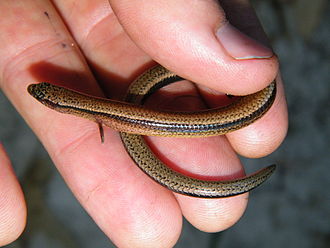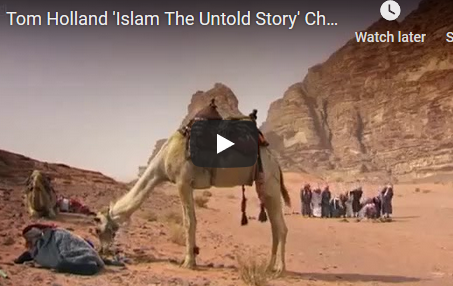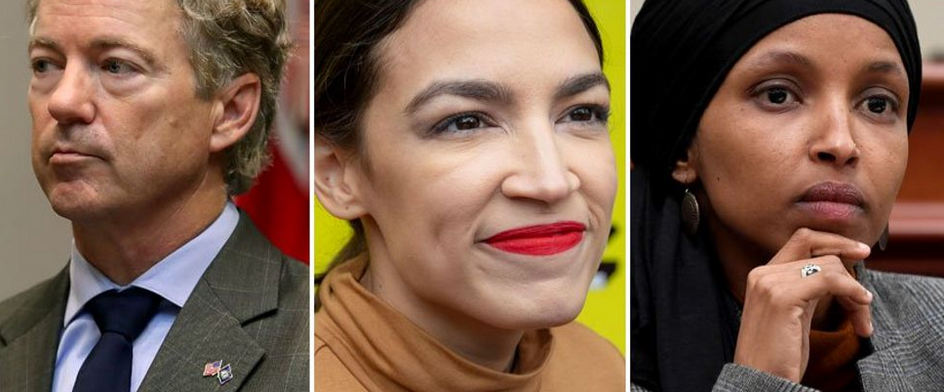 From Rosa Rubicondior
From Rosa Rubicondior
Three-toed Skink Is an Evolutionary Intermediate
Today from the the reptile world, we have a very nice example of evolution in progress, or at least in a state of dynamic equilibrium between two characteristics, each of which could be advantageous in different circumstances.
This example is an Australian skink which appears to be so finely balanced between egg-laying (oviparous) and live-young bearing (viviparous), that one individual has been observed doing both in the same pregnancy. Several weeks after laying a batch of three eggs, an individual three-toed skink, Saiphos equalis, was seen to give birth to a live young. . . .
—
From Julia Bainbridge on Salon.com
Life after fundamentalist Christianity: One former believer’s struggle to find clarity and himself
. . . . “Even though I still had my small bubble around me, we were what Christian artists would call playing crossover venues,” he told “The Lonely Hour.” “We were out there playing bars and meeting people all over the country that my parents warned me about or that the church cursed. I’m becoming friends with them and I’m having these beautiful, wonderful experiences with them. So I started to question my religion: Is this what they were worried about? Like, just normal people? That definitely started to challenge my long-held beliefs even further.” . . . .
Reading James’ story made me wish I had never given up music lessons so I, too, could have been in a band and learned lessons far sooner than I did. There’s also a link to the audio interview with James.
—

Was Mohammad Real?
“We can’t be certain how the Arabs became Muslim”, says researcher Tom Holland. Fascinating! Was Mohammad (“the Praised One”) originally Jesus? Was Islam originally a non-trinitarian Christian sect that rejected the need for an atonement on the cross? The evidence from coins don’t lie. People do. This is extremely interesting and new to me. Makes sense. The first video is by the Atheistic Republic, who got me thinking. The others back it up.
Loftus refers to Tom Holland’s exploration of the question of Muhammad’s historicity, something I have done here, too — See
- Islam, the Untold Story (2013-03-10)
- Islam’s Origins, the Historical Problem — notes on the reading Tom Holland’s “In the Shadow of the Sword” (2013-03-30)
- Origins of Islam: Most Recent Interview with Tom Holland (2013-07-09)
Come on, John. Keep up.
—
 From René Salm’s Mythicist Papers
From René Salm’s Mythicist Papers
Rene Salm is continuing to augment a database of Hermann Detering’s legacy:
This is the first of several posts that will review Dr. Detering’s life and scholarship according to the available material on- and offline. It is carried out from afar and in an admittedly impromptu manner. I invite readers to add data, links, or corrections—simply send me an email with the information and I will consider adding it to the CV. The Wikipedia article (German here) is a good place to begin, and Detering’s own brief VITA in German is on his website here.
These posts are deceptively short. However, they are dense with links that offer the interested reader avenues to explore a good deal of material.
If possible, I would like to add a personal impression of Dr. Detering’s character, work, and family life. Any reader who knew Hermann personally, and for some length of time, is invited to email me his/her impressions which I will review and certainly consider uploading.
—
 Oh no, from Salon.com, some frightening news!
Oh no, from Salon.com, some frightening news!
Alexandria Ocasio-Cortez and Ilhan Omar team up with Rand Paul to praise Trump for Syria withdrawal
Won’t Trump see their support as enough reason to change his mind and go back into Syria in force?!! Why can’t they just stay quiet and make him think they oppose him on everything?
If you enjoyed this post, please consider donating to Vridar. Thanks!

I favor the move by AOC and Omar. It shows that they are focused on policy, not partisanship. I think its welcome. I’m not sure whether withdrawal from Syria is actually good policy, or if it is even actually going to happen, but I think its good that they are supporting it if they think its good policy, regardless of whether it’s being done by Trump.
“Was Mohammad (“the Praised One”) originally Jesus? ”
why all the early inscriptions transcribe the name muhammad and never translate it ? wouldn’t this imply muhammad was a proper name?
”
Yusuf Gürsey There is a Syriac instance of mwHmT or mwHmd dated to around 636 or a little later. It has been argued that the first vowel was pronounced as a schwa in Arabic of 7th cent. Levant”
so whats going on ?
Before we get to the question of “was Muhammad real” we have to get to the question of, “where did the Koran come from”?
I think what’s clear is that the Muhammad of legend certainly wasn’t real. Did anyone named Muhammad have anything to do with the origins of the Koran? That’s a more pertinent question I think.
I haven’t studied the Koran enough to really provide good analysis of it, but from what little I’ve learned of it, it seems to be a compilation of Hellenistic and Arab works from many different sources. I suspect that the Koran may have been commissioned in order to bring together some disparate groups and unite them in opposition to Western Roman rule. It seems that Islam was born out of the expulsion of heretical Christians, Jews, and pagans from the Western Roman empire. Islam comes on the scene shortly after the Western empire was consolidated under Christian rule and significant pogroms against non-Catholics began. This forced many non-Catholics out to the east, who brought with them heretical Christian, Jewish and “pagan” works.
What we find in the Koran are several references to ideas that had been deemed heretical by the Catholics, including some ideas from Aristotle, etc. and various concepts from Greek science that had been denounced by the Catholics. So certainly a lot of Greek and Roman knowledge and philosophical concepts that had been ruled heretical by the Catholics got preserved by Muslims. In this sense, it is appropriate to view Islam as a more enlightened version of Christianity that was more inclusive of a broader range of philosophic concepts than Catholicism was.
Did any of this have anything to do with Muhammad? It doesn’t seem so. It seems that Muhammad was either a later invented founder figure or an tangential ruler or warlord who may have had some roll in uniting some Arab tribes around this time that later Muslims tried to hitch their wagon to.
One irony of Islam, IMO, is that it is more reasonable and believable than Christianity in many ways, which has led to more fervent adoption of it. In other words, it’s not so absurd that so many people have doubted and rejected it like has happened with Christianity. Yet, it’s really still just another bunch of ancient fables and archaic ideas.
re –
I think we would do well to rethink and re-characterize ‘Western ‘Roman’ and the Christian church as being ‘Catholic’ before the 8th or 9th century a.d. because the western empire had collapsed by the mid 280s a.d and ‘Rome’ had been moved around – mostly in the east – before being established as Nova Roma (Νέα, δευτέρα Ῥώμη) in what had been known as Byzantium and became known as Constantinople after Constantine I’s death. The eastern Roman empire became the Byzantine empire by the end of the 4th century while the western Roman empire languished and essentially folded.
Christianity is likely to have been mostly eastern [orthodox] at the time Islam was spawned. I’m not sure if Christianity was Catholic or much Catholic before the collapse of the Byzantine empire.
Thank you for the shout-out!
• Per “Darwin-Doubters”, first establish that an intelligible dialogue on microevolution is possible.
“Microevolution”. Wikipedia.
Cline, Austin (27 March 2019). “The Difference Between Microevolution and Macroevolution”. ThoughtCo.
I’ll just take this opportunity to flaunt by “article” (web book) on evolution: Understanding Evolution: History, Theory, Evidence, and Implications: http://www.rationalrevolution.net/articles/understanding_evolution.htm
Writing this was actually one of the things that put me on the road to writing about Jesus historicity, and I’m still trying to get back to publishing a revised and improved version of this and tying it all back in to a mythicst understanding of Christian origins.
• There is a convergence on evolution and a divergence on Jesus ahistoricty theory between R. G. Price and Jonathan Tweet, which perhaps may be interesting in some way viz.”Tribal Atheism”. see: “Jonathan Tweet”. Wikipedia.
“TIES Webinar: Jonathan Tweet, author of Grandmother Fish”. YouTube. Richard Dawkins Foundation for Reason & Science. 13 August 2018.
“Historical Jesus Debate”. YouTube. Seattle Atheists. 9 October 2017.
Ha, funny. I created my own children’s book about evolution about 8 years ago, but only for personal use, I never publicly published it. It’s called a Long, Long, Long, Long, Loooong Time Ago :p It covers the origin of the earth through to present day in about 20 pages :p
Islam’s historical records – superficial search
The suggestion that there is “no evidence” is a lie – primary point – a simple search can find much evidence. The next step is to see how the evidence is being interpreted and re-interpreted. Another useful step is to see motive of the Arab conquests and how or why they were successful in their campaigns. Nothing like zeal and religious conviction can rally people to invade and conquer.
https://en.m.wikipedia.org/wiki/Teaching_of_Jacob
The more mainstream non-Islamic sources actually attempt to indicate the Prophet Muhammad (SAW) to have been alive during the Arab conquests – the idea by Tom Holland has been extended further. The attempt to reframe Islamic Muslim version of history was to infer Muhammad (SAW) was personally involved in the campaigns, the new narrative is that Arabs did the conquests and designed Islam as an afterthought. Whereas the Muslim idea is that the Caliphs were responsible and were taking the message forward only.
https://en.m.wikipedia.org/wiki/Fragment_on_the_Arab_Conquests
It is clear at least here that if only external sources are to be followed – then the position is that the prophet himself was involved. Consider also that at the time when these discussions were taking place. People had their own understanding of the eschatology and traits of the Messiah/ Prophet – they were using those understandings as you would expect them to. – i.e. Messiah would not be a fighter, etc
https://en.m.wikipedia.org/wiki/Sophronius_of_Jerusalem
The events in the above link need to be thoroughly investigated in my opinion. Specifcially any document that conflicts with the official version and is as old as it. Since both worlds were involved Christian and Muslim documents should be in place to reflect this event.
https://en.m.wikipedia.org/wiki/PERF_558
Clear evidence of 7th century hijri date?
https://en.m.wikipedia.org/wiki/History_of_the_Arabic_alphabet#Pre-Islamic_Arabic_inscriptions
Evidence that Arabic in pre-Islamic times is rare, but not non-existent since the very birth of Islam. It’s records do not start in the 800s as suggested. Entertaining the Holland argument we need to further in infer that alongside an Arab conquest without a clear motive to spread there was also a fast paced growth of Arabic writing all of which comes before the religion!? – They don’t see that as a sign of the new found religion and purpose and direction – which is quite strange coming from a historian.
There are actually several other aspects linked in this superficial search …
https://en.m.wikipedia.org/wiki/Historiography_of_early_Islam
I’m going to look in to this ‘coin’ argument too. I saw the video and to me it seemed like I was reading the name Muhammad on the coin. But I need a clear photo to cross-examine. The assertion that it says “real” on the coin needs to be looked in to. I highly doubt it – because it was not suggested where or why that term is stated on the coin and I have other theories too such as re-minted coins … That is when the Muslims conquered the regions they kept the coinage as before but restamped or over-stamped them – but I need to look in to this further.
I won’t spend too much time on this though as this is not my area of interest, but as a Muslim I feel I should do my bit to critique the theory.
That’s utter nonsense. You obviously have not even taken the trouble to examine the evidence and arguments on both sides of the question.
Have you taken the trouble to actually examine the arguments that you seem to think all your links nullify? You lost me with your very first one, the Teaching of Jacob link. Can you explain how that particular document undermines the argument you seem to assume it does?
Please examine the arguments before just swiping off assertions from here and there on the web on the assumption that they hold all the answers you think will satisfy your views and demolish arguments you have not even bothered to examine.
Neil … To clarify …
I was not really giving an academic or detailed response – but it was more of a reaction – a posted points that can be developed to arguments against the notion. You are totally right that I have not addressed specifics and although I didn’t intend to go into this deeply I guess I have to at least give it the attention it deserves.
I consider it a challenge and hopefully can exercise some skills that I have learnt from you and others who frequent this site.
A quick update – I’ve been well diverted from my actual area of interest, however, this is great stuff. I can now tie in to this area too.
Initial conclusions: I acknowledge that I was quite hasty – there is a lot of interesting information regarding Arabs who were Christian and Jewish pre-Islam, however I’m drawing different conclusions of their presence and role in the early Islamic empire.
I’ve already found some areas of clear contrast from the above narrative that I can hint on but I will elaborate on hopefully later.
There were Arabic Christians around in Syria – but when the Muslim army invaded at the time of Abdul Malik, the settlers brought a new mix – then there were indeginous Arab Christians a form of Trinitarians and coloniser Arab Muslims from the south in smaller numbers. I’ll back this notion up in future posts. There may have been others too Nabateans and Aramains who had a sort of unitarian Christianity or Messianic Judaism.
Yet there is also some reason to believe that what we call “Muslim” at that time was very inchoate, scarcely recognizable as Muslim compared with the religion that we find clearly established quite some time after those conquests.
Quick update …
Syriac is the key
Please browse to this link …
https://www.ucpress.edu/book/9780520284944/when-christians-first-met-muslims
Read the excerpt pdf by clicking the button on the right – it should present the introduction of the book.
Summary –
Research in this area is dominated by Orientalism/Islamicistism (not to be confused as Islamism) in the languages of Latin/Greek and Arabic/Persian.
Limiting research in these languages leads to the historical silence of early Islam. However, Syriac might be to the rescue …
Syriac was used by the scholarly Christian bishops who were among the first make contact with early Muslims. This book might actually oppose some of the conclusions of Hagarism supporting historians.
Secondly, there have been a number of 7th century Syriac writing discovered in Qatar recently and they remain largely unpublished. Qatar was a satellite location for monasteries affiliated to the Syrian Church in antiquity. Their bishops would attend Synods – but they stopped attending I think in 674 AD. Something happened clearly.
I suppose some of those Syriac writings will speak about Muslims. I’m going to find out from a book in the Qatar library – easy for me as I live in Qatar at the moment. General historical silence in the Ummayad period is a result of Muslim control over largely Eastern Christian areas without converting the people or interfering with the established economic structures of the Christians before them. It was work in progress – as a way to explain that missing information.
• The possible influence of the following (or even other) groups in the development of Islam, should be also considered.
“Mani (prophet)”. Wikipedia.
“Mandaeism”. Wikipedia.
Thank you db … Islamic tradition itself links itself directly to Christianity and before that to Judaism. Mandaeism predates Christianity by a short while so there is no real reason to infer a connection directly with it and Islam other than what nominal history already reveals. Rather the Jewish Christians and such communities that were unitarian/monastic/ascetic are more likely to be the precursors we are looking for. Even in Islamic tradition we are informed of a group of people called the Haneef. Some people associate them to Nestorians and/or Nazirities and/or Ebionites – thing is there were also migrated Jews (possibly Essenes) and Arab converts to Judaism in this region already also we cannot forget the Abyssinian Copts – descendants of the Aksumite kingdom either. Arabia was a breeding ground for Abrahamic religion. The Nabataens were in the mix too – Christians and pagan tribes were also spread around the same region.
I’m convinced the prophet Muhammad came in to these traditions and he was a member of Haneef before receiving/claiming prophethood. Although Muslims would not like to say or focus on that because it makes it is seem we are creating a precedent for others to say he copied or borrowed from other faith orders. But history is history. He did bring some unique elements though – I am beginning to see more than ever a spectrum of interconnectedness a true legacy of one to the other. Early Islamic expansion shows not how one civilisation enveloped another, but how the same civilisation evolved in to the next.
Islamic dogma remains an enigma – especially from the POV of language – seeing that from a linguistic basis there is no evolution at all. To entertain otherwise we would have say that not only did the Qur’an somehow Arabise Syriac/Latin/Greek texts, but it artfully removed elements so precisely that later interpretations could not honestly arrive at the same conclusions that the Church reached regarding its theology and christology and yet at the same time when recited sounds like poetry and created an oral tradition so robust that people until today memorise the text as a general practice – the side-effect of which is its stability.
he was a member of Haneef before receiving/claiming prophethood
If The “ḥanīfiyyah” is the law of Ibrahim, then that implies that devotees practice:
• Abrahamic monotheism
• Religious male circumcision
• ???
Cf. “Hanif”. Wikipedia.
Yeah totally!
The Prophet Muhammad was never known to worship idols – in all his 40 years pre-prophethood. He always believed in one God, his tribe recognised itself as the progeny of Ishmael and hence kept the covenant – i.e. circumcision. The basic elements of Abrahamic monotheism were already known. Further to this there are certain meditative techniques that became popular practice signifying that anchorite link. However, idolatry had become widespread in Arabia and additional gods had accumulated in time – that does not mean there were no Monotheists around.
Some authors who have questioned the historicity of Muhammad are mentioned at
https://vridar.org/2010/06/03/muhammad-mythicism-and-the-fallacy-of-jesus-agnosticism/
and
https://vridar.org/2015/03/26/did-muhammad-exist-a-revisionist-look-at-islams-origins/